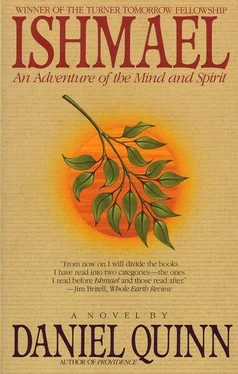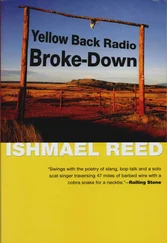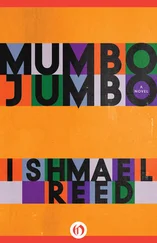“Captivity.”
“That’s correct.”
I sat there for a minute, then I said, “I’m trying to figure out what this has to do with saving the world.”
Ishmael thought for a moment. “Among the people of your culture, which want to destroy the world?”
“Which want to destroy it? As far as I know, no one specifically wants to destroy the world.”
“And yet you do destroy it, each of you. Each of you contributes daily to the destruction of the world.”
“Yes, that’s so.”
“Why don’t you stop?”
I shrugged. “Frankly, we don’t know how.”
“You’re captives of a civilizational system that more or less compels you to go on destroying the world in order to live.”
“Yes, that’s the way it seems.”
“So. You are captives—and you have made a captive of the world itself. That’s what’s at stake, isn’t it?—your captivity and the captivity of the world.”
“Yes, that’s so. I’ve just never thought of it that way.”
“And you yourself are a captive in a personal way, are you not?”
“How so?”
Ishmael smiled, revealing a great mass of ivory–colored teeth. I hadn’t known he could, until then.
I said: “I have an impression of being a captive, but I can’t explain why I have this impression.”
“A few years ago—you must have been a child at the time, so you may not remember it—many young people of this country had the same impression. They made an ingenuous and disorganized effort to escape from captivity but ultimately failed, because they were unable to find the bars of the cage. If you can’t discover what’s keeping you in, the will to get out soon becomes confused and ineffectual.”
“Yes, that’s the sense I have of it.”
Ishmael nodded.
“But again, how does this relate to saving the world?”
“The world is not going to survive for very much longer as humanity’s captive. Does that need explication?”
“No. At least not to me.”
“I think there are many among you who would be glad to release the world from captivity.”
“I agree.”
“What prevents them from doing this?”
“I don’t know.”
“This is what prevents them: They’re unable to find the bars of the cage.”
“Yes,” I said. “I see.” Then: “What do we do next?”
Ishmael smiled again. “Since I have told you a story that explains how I come to be here, perhaps you will do the same.”
“What do you mean?”
“I mean, perhaps you will tell me a story that explains how you come to be here.”
“Ah,” I said. “Give me a moment.”
“You may have any number of moments,” he replied gravely.
“Once when I was in college,” I told him at last, “I wrote a paper for a philosophy class. I don’t remember exactly what the assignment was—something to do with epistemology. Here’s what I said in the paper, roughly: Guess what? The Nazis didn’t lose the war after all. They won it and nourished. They took over the world and wiped out every last Jew, every last Gypsy, black, East Indian, and American Indian. Then, when they were finished with that, they wiped out the Russians and the Poles and the Bohemians and the Moravians and the Bulgarians and the Serbians and the Croatians—all the Slavs. Then they started in on the Polynesians and the Koreans and the Chinese and the Japanese—all the peoples of Asia. This took a long, long time, but when it was all over, everyone in the world was one hundred percent Aryan, and they were all very, very happy.
“Naturally the textbooks used in the schools no longer mentioned any race but the Aryan or any language but German or any religion but Hitlerism or any political system but National Socialism. There would have been no point. After a few generations of that, no one could have put anything different into the textbooks even if they’d wanted to, because they didn’t know anything different.
“But one day two young students were conversing at the University of New Heidelberg in Tokyo. Both were handsome in the usual Aryan way, but one of them looked vaguely worried and unhappy. That was Kurt. His friend said, ‘What’s wrong, Kurt? Why are you always moping around like this?’ Kurt said, ‘I’ll tell you, Hans. There is something that’s troubling me—and troubling me deeply.’ His friend asked what it was. ‘It’s this,’ Kurt said. ‘I can’t shake the crazy feeling that there is some small thing that we’re being lied to about.’
“And that’s how the paper ended.”
Ishmael nodded thoughtfully. “And what did your teacher think of that?”
“He wanted to know if I had the same crazy feeling as Kurt. When I said I did, he wanted to know what I thought we were being lied to about. I said, ‘How could I know? I’m no better off than Kurt.’ Of course, he didn’t think I was being serious. He assumed it was just an exercise in epistemology.”
“And do you still wonder if you’ve been lied to?”
“Yes, but not as desperately as I did then.”
“Not as desperately? Why is that?”
“Because I’ve found out that, as a practical matter, it doesn’t make any difference. Whether we’re being lied to or not, we still have to get up and go to work and pay the bills and all the rest.”
“Unless, of course, you all began to suspect you were being lied to—and all found out what the lie was.”
“What do you mean?”
“If you alone found out what the lie was, then you’re probably right—it would make no great difference. But if you all found out what the lie was, it might conceivably make a very great difference indeed.”
“True.”
“Then that is what we must hope for.”
I started to ask him what he meant by that, but he held up a leathery black hand and told me: “Tomorrow.”
That evening I went for a walk. To walk for the sake of walking is something I seldom do. Inside my apartment I’d felt inexplicably anxious. I needed to talk to someone, to be reassured. Or perhaps I needed to confess my sin: I was once again having impure thoughts about saving the world. Or it was neither of these—I was afraid I was dreaming. Indeed, considering the events of the day, it was likely that I was dreaming. I sometimes fly in my dreams, and each time I say to myself, “At last—it’s happening in reality and not in a dream!”
In any case, I needed to talk to someone, and I was alone. This is my habitual condition, by choice—or so I tell myself. Mere acquaintanceship leaves me unsatisfied, and few people are willing to accept the burdens and risks of friendship as I conceive of it.
People say that I’m sour and misanthropic, and I tell them they’re probably right. Argument of any sort, on any subject, has always seemed like a waste of time to me.
The next morning I woke and thought: “Even so, it could be a dream. One can sleep in a dream, even have dreams in a dream.” As I went through the motions of making breakfast, eating, and washing up, my heart was pounding furiously. It seemed to be saying, “How can you pretend not to be terrified?”
The time passed. I drove downtown. The building was still there. The office at the end of the hall on the ground floor was still there and still unlocked.
When I opened the door, Ishmael’s huge, meaty aroma came down on me like a thunderclap. On wobbly legs, I walked to the chair and sat down.
Ishmael studied me gravely through the dark glass, as if wondering if I was strong enough to be taxed with serious conversation. When he made up his mind, he began without preamble of any kind, and I came to know that this was his usual style.
Читать дальше
Конец ознакомительного отрывка
Купить книгу












